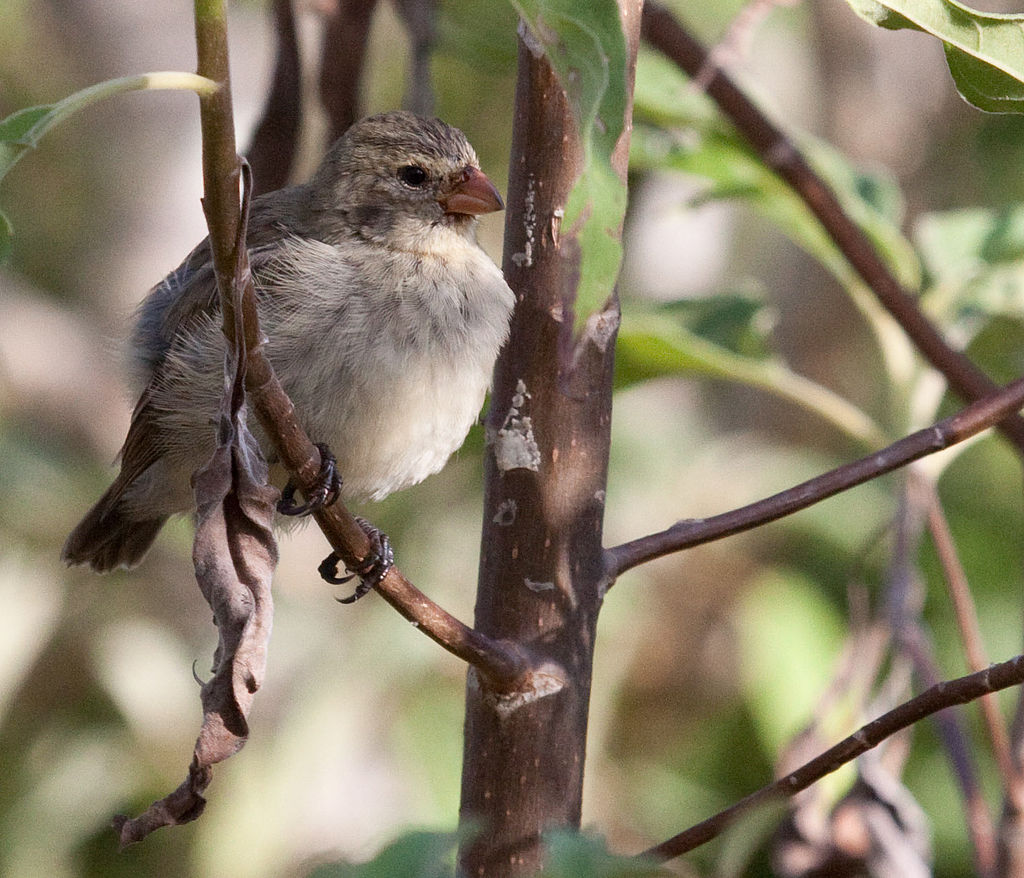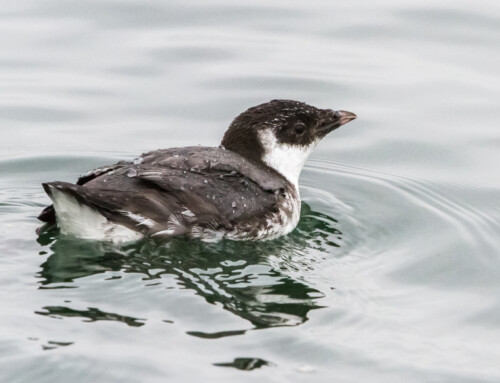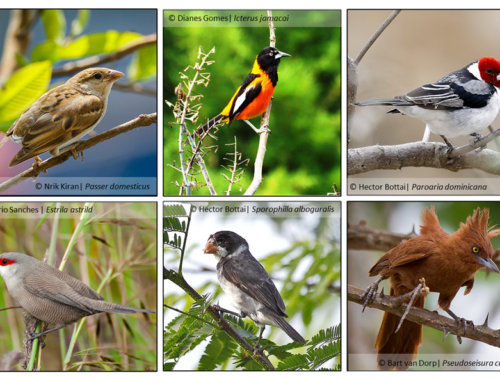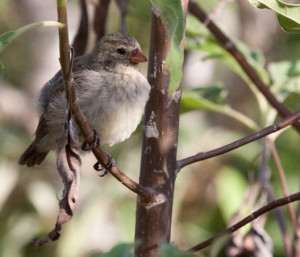 LINKED PAPER
LINKED PAPER
Parental care in the Small Tree Finch Camarhynchus parvulus in relation to parasitism and environmental factors. Heyer, E., Cimadom, A., Wappl, C., & Tebbich, S. 2021. IBIS. DOI: 10.1111/ibi.12845. VIEW
On the Galapagos Islands, Darwin’s finches are threatened by the invasive parasitic fly Philornis downsi. The larvae of this fly feed on the blood and tissues of nestlings, resulting in high mortality rates among the chicks (Kleindorfer & Dudaniec 2016). One way the birds could deal with this parasite is by bringing more food to their offspring, so they have more energy to fight off the parasites. This idea – known as the parental food compensation hypothesis – has been tested in several bird species with mixed results (Knutie et al. 2016). Some species, such as the great tit (Parus major) and the Galapagos mockingbird (Mimus parvulus) provided evidence for this hypothesis, while other species (e.g., the House Wren Troglodytes aedon) did not. A recent study focused on one species of Darwin’s Finches – the small tree finch (Camarhynchus parvulus) – and investigated whether it could compensate for the negative effects of parasites by increasing the food provisioning to the nest.
Weed management
The situation on the Galapagos Islands becomes more complicated due to active weed management to control invasive plants (Cimadom et al. 2019). The management measures might temporally decrease food availability and thus reduce the parents’ ability to provide food for their nestlings. To take this factor into account, the researchers monitored the nests of small tree finches in areas with no management, short-term and long-term management. From a total of 61 nests, half were treated with the chemical permethrin to experimentally reduce the parasite infections. This clever design allowed the researchers to directly study the effect of parasites on food provisioning rates in different management areas.
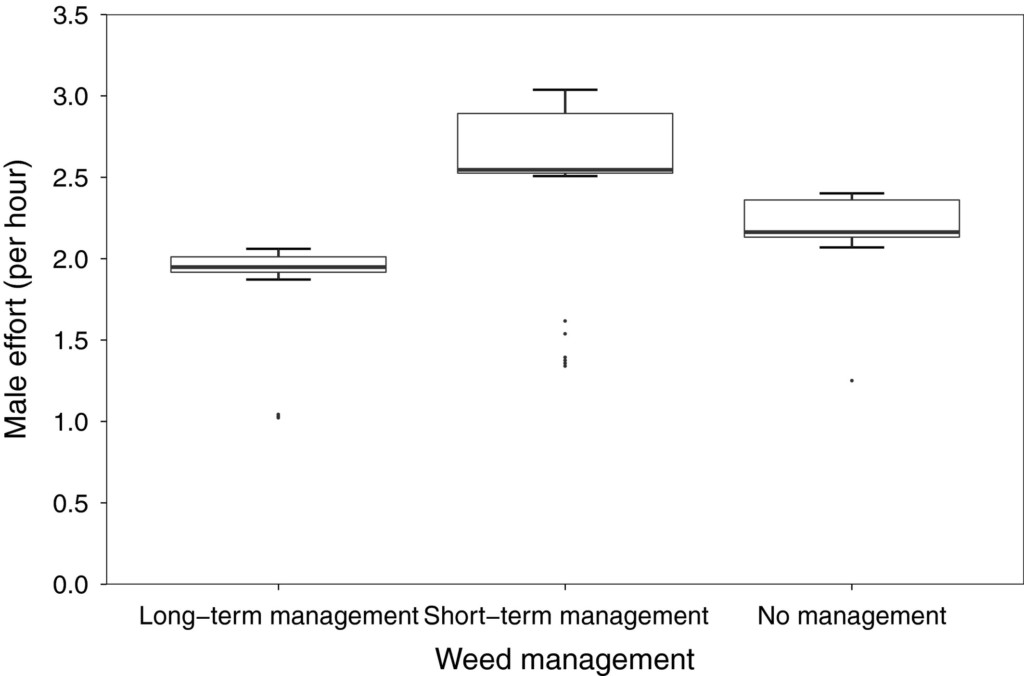
Figure 1. Male small tree finches bring more food to the nest in short-term management areas, suggesting that they can compensate for the low quality food in these areas.
Male effort
Statistical analyses reported no differences in parental food provisioning among the three management areas and no effect of the parasite infections. However, males seemed to increase their provisioning rates in the short-term management area (even though it did not increase breeding success). This observation suggests that males might bring more food to the nest to compensate for the lower food quality in these managed areas. Based on these findings, the researchers concluded that “small tree finches cannot compensate for parasitism but may be able to compensate for reduced food availability or quality.” These insights can be used to finetune the weed management on the Galapagos Islands. To safeguard the breeding success of the small tree finch, it is advisable to remove invasive plants sequentially at smaller scales. This strategy will preserve sufficient breeding and foraging habitat for these birds.
References
Cimadom, A., Jäger, H., Schulze, C.H., Hood-Nowotny, R., Wappl, C. & Tebbich, S. (2019). Weed management increases the detrimental effect of an invasive parasite on arboreal Darwin’s finches. Biological Conservation 233: 93– 101. VIEW
Kleindorfer, S. & Dudaniec, R.Y. (2016). Host-parasite ecology, behavior and genetics: a review of the introduced fly parasite Philornis downsi and its Darwin’s finch hosts. BMC Zoology 1: 1. VIEW
Knutie, S.A., Owen, J.P., McNew, S.M., Bartlow, A.W., Arriero, E., Herman, J.M., DiBlasi, E., Thompson, M., Koop, J.A.H. & Clayton, D.H. (2016). Galápagos mockingbirds tolerate introduced parasites that affect Darwin’s finches. Ecology 97: 940– 950. VIEW
Image credits
Top right: Small tree finch (Camarhynchus parvulus) | Mike Comber | CC BY-SA 2.0 Wikimedia Commons
Blog posts express the views of the individual author(s) and not those of the BOU.
If you want to write about your research in #theBOUblog, then please see here


